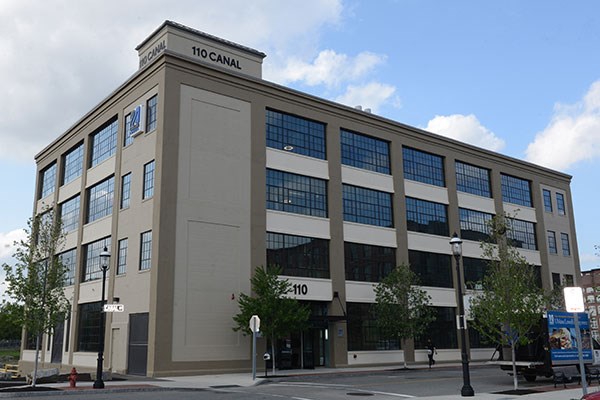
06/06/2018
Aaron Curtis
Lowell Sun
By
LOWELL -- A Lowell-based business incubator for medical device startups joined a network of national institutions enlisted to combat health security threats and to solve problems facing daily medical care.
The Massachusetts Medical Device Development Center (M2D2) -- a joint partnership between UMass Lowell and UMass Medical Center -- was introduced Tuesday as among eight accelerators selected by the Department of Health and Human Services under the Biomedical Advanced Research and Development Authority or BARDA.
M2D2 will work together with seven other accelerators to scout out innovative technologies and products that can solve healthcare challenges extending beyond traditional vaccine and drug development.
"Accelerators are part of a new business-friendly approach," Deputy Secretary for Health and Human Services Eric Hargan said in an email released by the agency Tuesday.
"This approach will help startups and other businesses shape the next generation of lifesaving technology and transform health security," he said. "That innovation is crucial to protecting Americans and saving lives."
According to Tuesday's release, one healthcare problem to be addressed is the need for earlier detection of infection, and creating technology that can alert people when they have been infected with a bacteria or virus even before they begin to feel sick.
Another need is solving sepsis, the body's life-threatening response to infection or traumatic injury.
Sepsis leads to 250,000 deaths in the U.S. annually and costs approximately $24 billion annually to treat, according to Tuesday's release.
"The number of sepsis cases could skyrocket after a bioterrorism attack or pandemic," the release states.
UMass Lowell Plastics Engineering Professor Steve McCarthy is the founder and co-director of M2D2, which operates sites in Wannalancit Mills in Lowell and at the UMass Lowell Innovation Hub on Canal Street.
"We basically have the whole New England area to help companies get their products to the market and to help security," said McCarthy, who has been with UMass Lowell for 34 years. "To be one of the eight in the whole country is fantastic."
Tuesday's announcement revealed M2D2 has been awarded a roughly $100,000 grant from the Division of Research, Innovation, and Ventures, or DRIVe, which will oversee the network.
To assist startups and other businesses in developing technologies and products, accelerators will connect them with product development and support services, which could lead to follow-on investment from the public or private sectors.
"At a time when artificial intelligence and personalized medicine are not just conceivable but attainable, the time is uniquely now to solve some of the most daunting, far-reaching health security problems," said BARDA Director Rick Bright.
The remaining members of the network are the State University of New York Stony Brook's Center for Biotechnology, the University City Science Center in Philadelphia, North Carolina's First Flight Venture Center, the New Orleans BioInnovation Center, the Texas Medical Center Innovation Institute, Los Angeles' MedTech Innovator, and Seattle's Life Science Washington Institute.
McCarthy pointed out M2D2's selection as part of the national network will also help the growth of the school's Biomedical Engineering Department, started approximately two years ago.
